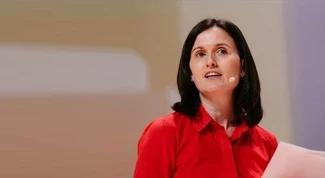A rugby legend, Jonny Wilkinson is responsible for the drop goal that secured England’s 2003 Rugby World Cup victory. He credits such success to his empowered leadership style and mental resilience, which Jonny describes as a “courageous concept”:
Our Director, Jack Hayes, recently sat down with Jonny to discover the highs and lows of his incredible career, and how he managed immense pressure while playing for his country. Discover all of this and more, in our interview below.
Q: What specific physical & mental skills are necessary to thrive as a rugby player?
“To thrive as a rugby player, it’s the same as any other job or profession. It simply requires you to be fully present, clear, aware and ready.
“I guess it comes down to what ‘ready’ means. It means owning the space you stand in but also having a relaxed spontaneity and creativity about the way that you move.
“In terms of mentality, it’s about clarity, having absolute intention about what you want to achieve. But also the adaptability, flexibility and creativity to find the best way to get there, according to what’s happening around you.
“It’s the same in business. Maybe there are a few things that are different, like running into people – that doesn’t happen in every profession! There’s a certain amount of training that goes into that, but from a physical and mental perspective, it’s the same thing.”
Q: What was the toughest loss you had during your career & how did you overcome it?
“I think the toughest loss I experienced was when I played one of my first full international games over in Australia, and we were beaten heavily, by 75 points.
“If you can imagine, as a young kid all your dreams are about how your international career is going to go and what a joy it’s going to be, suddenly you’re in a changing room feeling absolutely humiliated, to the extent that the crowd at the end of it are jeering and laughing.
“On that day the organisers of the event had a group of people doing press-ups on the side of the field for every point scored, and the joke was that by the end of it, they couldn’t do it. There were too many points, and the crowd were laughing.
“With all that initial pride and self-importance, feeling like I know what I’m doing to then feeling completely empty. It was enormously impactful and left me in a very challenged space for a good three or four days.
“But, as a result, the shift that came from experiencing that would rest as one of the bedrocks I built upon.”
Q: What has been the highlight of your career so far?
“Even though I’m retired now, I’m experiencing the best parts of my career every day.
“As I explore the boundaries of who I am, and I look back at what I went through, it starts to mean more now than it did at the time.
“At the time, it was just about winning, being ‘someone’ and being a success, and therefore if you asked me that question before, I probably would have said, ‘oh, just lifting a trophy, winning a World Cup’.
“But as I get older and start to remove those boundaries of who I am, I see things more fully. And now, when I look back at my rugby career, I realise that it was just an incredible experience of learning.
“I enjoy my career so much more now that I’m retired than when I was playing because I’m able to see so much more of what it meant, the connections and energy exchanged between players. The way we served each other as team-mates, and how our experiences were serving us.
“While with the England team, we lost the World Cup in the quarterfinal, 1999. We then lost the Grand Slam, and every time in pretty much the last game we had our dreams robbed of us, every single time.
“And if you’d have asked me then I’d have said, ‘oh, what a waste of time, the world is against us’. Then we had the most ridiculous year in 2003 where we won everything and won the World Cup!
“After that, I had four years of injury, which was crazy, and then when we came back for the next World Cup we got to the final, almost won it. And then I had more injuries, went to France and that was crazy, I learned a new language. And at the time you’re just thinking, ‘oh, the next thing, the next thing, the next thing’.
“When you look back, you realise it’s an unfolding journey of whatever was needed. It all maps out and is beautifully connected. It comes not because you work it out, it comes because you let go and it all makes sense.
“What was the highest point of my career? Absolutely all of it. Just all of it. From start to finish.
“Even the bits where I was injured and dropped, when I would have said ‘it’s the worst thing in the world’. Looking back now, it’s just beautiful.”
Q: How do you build mental resilience & stay mentally fit?
“The idea of resilience belongs to a certain fixed identity that says, ‘this is who I am, these are my dreams. These things are right, and these things are wrong. This is success, and this is failure’.
“If something knocks me back, then I have to get back up and fight for what I originally decided.
“There’s a definite degree of persistence needed to get back out there and express yourself. But the version of resilience I have is very different, as my understanding of who I am is constantly changing.
“Your self-worth, your potential and your being cannot be impacted by anything external. It’s on a different level. And as a result, if you’re able to touch that space, then you can be creative with who you are.
“And so, therefore, whenever you are facing challenges, you’re able to adapt, recreate and reinvent who you are, to come back brand new and fresh.
“This idea of resilience, the idea of coming back completely brand new with all the same learning you’ve had before, allows you to attack challenges with both a childlike passion and the experience of an older person.”
Q: As a former England captain, what was your specific leadership style & what advice would you give others wanting to improve their management strategy?
“Start with the simple question, ‘what is it you want from your team?’ – individually and collectively.
“Starting individually, what do you want from each of those players? And the answer is, I want them to be at their best.
“The second question is, do you know what their best is? If your answer is ‘yes’, then your leadership is gone, because if you know what someone else’s potential is you’ve already placed a limit on them.
“So, the second answer should be, ‘of course I don’t, their potential is unknown’. And from that, you have your leadership laid out for you. You have a choice, ‘am I going to try and control these guys, or am I going to allow them to be who they can be?’.
“I spent my younger career when I was tied up with self-importance, believing that everything I knew was the answer. For me to connect with anyone, they had to be exactly as I wanted them to be for me to give them time. And I ended up controlling people, not just verbally but when people came up to me, the way they behaved, the way they stood, the way they spoke to me – they had to be something that they weren’t.
“So by the end of my career, I realised that if I want to get the best out of these players, I need them to be all they can be. And I don’t know what that is, so, therefore, I have to allow it.
“The only way to allow that is to start looking at myself. Because if I think I know what my potential is and I come to the end of that journey, I’ll start controlling everyone else.
“Leadership has got nothing to do with anyone else. The moment people start trying to inspire each other, life goes horribly wrong. The moment people start inspiring themselves, it leads everyone around them. Therefore, follow your passions, and reveal the limitless and boundaryless experience of who you are.
“Within that new space you encounter, there’s room for everyone around you to live and be all they can be as well. Then you get a real team.”
Q: How do you define ‘pressure’?
“Pressure isn’t inherent in the world – there is no such thing as pressure, it’s not a real thing.
“If I get what I want, it’s going to be amazing, but if I don’t, it’s going to be okay too, so where is the pressure?
“When you think, ‘what will people think of me if I lose this?’ or ‘I’m letting people down’, that’s where pressure exists. It exists in those ideas; it doesn’t exist in the world.
“Exploring those ideas is what allows you to realise the difference between anticipation and the beauty of nervousness, the ‘on edge’ feeling of really living, versus feelings of failure.”
Book Jonny Wilkinson
Contact the Champions Speakers agency to provisionally enquire about Jonny Wilkinson for your event today. Simply call a booking agent on 0207 1010 553 or email us at [email protected] for more information.









